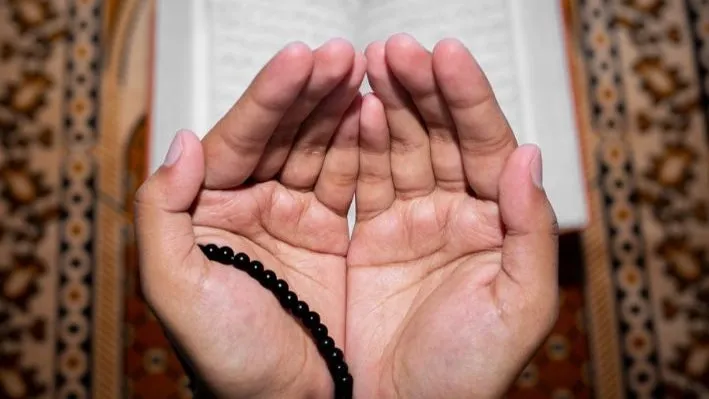- +201040914066
- info@quraaany.com


Dua for pain relief is a heartfelt appeal to the Divine for comfort and healing during times of distress. Many individuals experience physical or emotional pain, seeking solace through spiritual practices. In numerous cultures, prayer is a powerful tool that can provide not only mental strength but also a sense of peace. By reciting specific prayers, individuals can connect deeply with their faith, finding hope and encouragement amidst their struggles. This process not only fosters a positive mindset but also reinforces the belief that healing is possible, allowing one to navigate pain with resilience and faith.
dua for pain relief
In Islam, seeking healing through dua (supplication) is a deeply rooted practice. When faced with physical pain, Muslims often turn to Allah for relief. The belief is that Allah is the ultimate healer, and by turning to Him in times of suffering, one can find comfort and solace. The Quran and the teachings of the Prophet Muhammad (peace be upon him) encourage believers to seek healing through dua.
Reciting specific dua for pain relief is considered a form of spiritual treatment that complements medical care. These duas express trust in Allah’s ability to heal and provide relief. Muslims believe that by combining medical treatment with sincere supplication, they can hasten their recovery and find inner peace. Additionally, dua serves as a reminder of one’s mortality and dependence on Allah.
examples about dua for pain relief
Muslims have a rich tradition of seeking relief from pain through supplication, or dua. When faced with physical ailments, many turn to specific duas to seek Allah’s healing and mercy. One common dua is:
اللهم اشفنى.
O Allah, heal me.
This simple yet powerful supplication directly asks Allah for relief from pain.
Another frequently recited dua is:
اللهم انى أسألك شفاءً وعافيةً.
O Allah, I ask You for healing and wellness.
This dua for pain relief expresses a broader request for both physical and spiritual healing. Additionally, many Muslims recite specific verses from the Quran, such as Ayatul Kursi, to seek protection and healing.
الله لا إله إلا هو الحي القيوم لا تأخذه سنة ولا نوم له ما في السماوات وما في الأرض من ذا الذي يشفع عنده إلا بإذنه يعلم ما بين أيديهم وما خلفهم ولا يحيطون بشيء من علمه إلا بما شاء وسع كرسيه السماوات والأرض ولا يئوده حفظهما وهو العلي العظيم.
God, there is no god but He, the Ever-Living, the Self-Subsisting. No year or sleep can overtake Him. To Him belongs whatever is in the heavens and whatever is on the earth. Who is there that can intercede with Him except by His permission? He knows what is before them and what is behind them, and they do not comprehend any of His knowledge except what He wills. His throne extends over the heavens and the earth, and their preservation does not tire Him. He is the Most High, the Great.
It’s important to note that while reciting dua for pain relief is a powerful spiritual practice, it should not replace medical treatment. Rather, dua complements medical care, providing emotional and spiritual support to the individual. By combining faith with medical treatment, Muslims can find comfort and hope during times of illness.

Read more: Dua for Wudu: A Spiritual Purification for Body and Soul
Why should we turn to God to relieve pain?
When faced with physical or emotional pain, humans naturally seek relief. While medical interventions and human support systems are essential, turning to God for healing and comfort offers a unique dimension of solace. Allah, the Almighty, is the ultimate source of healing and the One who has the power to alleviate suffering. When we turn to Him in prayer and supplication, we acknowledge His sovereignty and place our trust in His infinite mercy.
The Power of Dua
dua for pain relief, is a powerful tool that connects us directly to Allah. When we make dua for healing, we are not merely asking for relief from pain but also expressing our submission to His will. The act of dua strengthens our faith and reminds us of our dependence on Him. Furthermore, it can provide a sense of peace and tranquility amidst suffering.
Emotional and Spiritual Healing
The pain we experience is not limited to the physical body; it often has emotional and spiritual dimensions as well. Turning to God offers a holistic approach to healing, addressing not only the physical pain but also the emotional and spiritual suffering that may accompany it. By seeking solace in our faith, we can find meaning in our pain and develop a greater sense of resilience.
A Pathway to Patience and Gratitude
When we experience pain, it can be challenging to maintain patience and gratitude. However, turning to God can help us cultivate these virtues. By acknowledging that Allah is the ultimate source of healing and that His wisdom is far greater than our own, we can develop a more patient and grateful attitude.
The Role of Faith in Healing
Faith plays a crucial role in the healing process. When we believe that Allah has the power to heal us, we are more likely to experience positive outcomes. This is not to say that faith is a substitute for medical treatment, but rather that it complements it. By combining medical care with faith, we can experience a more holistic and comprehensive approach to healing.

Read more: Dua for Pain Relief: Seeking Comfort Through Prayer
The importance of sincerity and belief when reciting duas
The efficacy of dua for pain relief, is intrinsically linked to the sincerity and belief of the supplicant. When we turn to Allah in prayer, the quality of our intention and the depth of our faith play a pivotal role in determining the response to our supplications.
Sincerity, or ikhlas, is the purest form of devotion. It means offering our prayers solely for the sake of Allah, without any ulterior motives or desires for worldly gain. When our hearts are filled with genuine belief in Allah’s power and His ability to answer our prayers, our duas become more potent.
Belief, or iman, provides the foundation upon which our prayers are built. It is our conviction that Allah hears and answers our supplications. When we truly believe that Allah can grant our requests, our faith strengthens and our hope increases.
Dua for pain relief serves as a powerful reminder of the spiritual support we can seek during difficult times. Trust in divine wisdom can bring comfort and healing to our ailments.